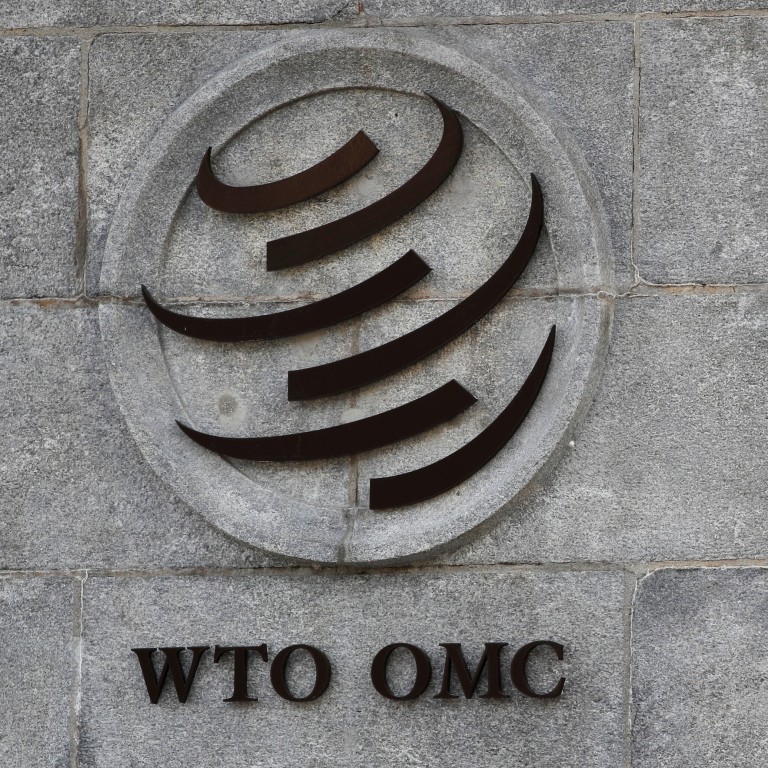
China-Australia relations: Canberra lashes out at China’s barley duties at WTO
- Australia made a stinging critique of China’s anti-dumping duties on its barley exports at the World Trade Organization (WTO) this week
- Canberra claims that China’s investigation is flawed, but Australia has yet to launch a formal dispute at the Geneva institution
Australia lashed out at China’s anti-dumping duties on its barley exports in a statement made at the World Trade Organization (WTO) this week, Geneva sources said.
The statement was made at a meeting of the WTO’s Committee on Anti-Dumping Practices on Wednesday.
Australian WTO officials criticised China’s investigation into whether Australia was dumping cheap barley on the market, and claimed that a flawed probe led to a miscalculation of the duties charged.
China has been engaged in an increasingly tense trade dispute with Australia over the course of this year, with duties, embargoes and tariffs imposed on a range of Australian products, including barley, coal, wine, cotton and beef.
Australia claimed the investigation had been “improperly initiated”, that the product involved had not been properly identified, and that Chinese authorities did not acknowledge receipt of information supplied by Australian producers, nor did it carry out verification visits.
In response, China’s WTO representatives simply said Australia’s concerns had been noted.
In May, Australia’s trade minister Simon Birmingham raised the possibility of suing China at the WTO over the duties, which are now just one in a series of products China has targeted in a developing trade dispute.

03:39
Australia’s last two accredited journalists in mainland China evacuated as diplomatic ties worsen
“We reserve all rights to appeal this matter further and are confident that Australian farmers are among the most productive in the world, who operate without government subsidy of prices,” said Birmingham at the time, adding that “Australia is not interested in a trade war. We don’t pursue our trade policies on a tit-for-tat basis”.
But to date, Australia has yet to launch a formal dispute at the Geneva body.
“Australia seems set to pursue this – they need to tame China’s use of trade remedy investigations. Experience with China shows that waiting and hoping for a change of behaviour does not work. Action speaks louder than words,” said Bryan Mercurio, a trade law professor at the Chinese University of Hong Kong.

02:14
Japan-US hold joint military drills including cyberwarfare training as concerns about China grow
Within days of slapping tariffs on Australian barley, China opened the door to US imports of the crop, suggesting Beijing would be able to easily replace Australia as a source.
China is by some distance the biggest buyer of Australian goods, accounting for around 39 per cent of Australia’s merchandise exports, making it vulnerable to the sort of punitive trade measures China has engaged in over recent months.
There has been speculation that the trade actions are linked to political tensions, with Australia having angered China by calling in April for an investigation into the origins of the coronavirus pandemic and banning Chinese telecoms giants Huawei and ZTE from its 5G networks.
I see that Australia might win the battle, [but] they would be losing the war because it would only further anger the Chinese
Australia may also be vulnerable to China’s renewed push for self-sufficiency and environmental commitments, both of which could impact the prospects for long-term trade for Australian coal and LNG.
In this regard, even bringing a WTO case on one front might not deter China from lashing out on another, trade watchers said.
“Other than barley they have so many other products that China could retaliate on, so they basically have a moving target,” said Henry Gao, a professor in trade law at Singapore Management University. “Even if they win on barley, does it really give them what they want because China can always shift to the next product on their list and keep going.
“So even as a lawyer, I see that Australia might win the battle, [but] they would be losing the war because it would only further anger the Chinese.”

